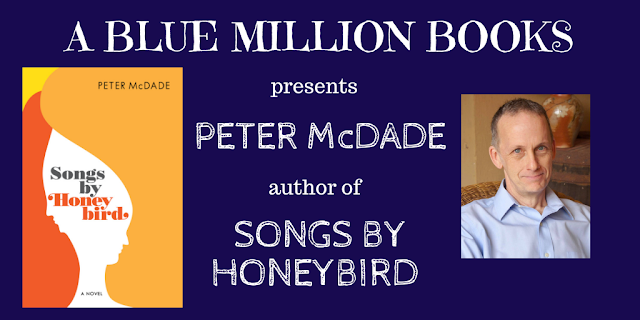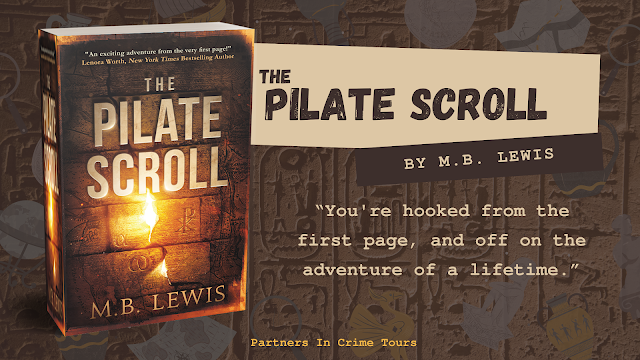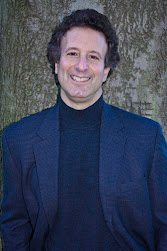ABOUT THE BOOK
Atlanta couple Ben and Nina plan to move in together, but their relationship unravels when Ben dismisses Nina’s surprising claim that her dog can talk. Songs By Honeybird follows the pair as they move on without each other. Doctoral candidate Ben dives into research on the tragic story of Honeybird, the South’s first integrated rock band, while spiritual savant Nina searches for the elusive truth about her father’s death.
Will the buried secrets of the past bring Ben and Nina back together—or send them down entirely new paths?
Book Details
Title: Songs by Honeybird
Author: Peter McDade
Genre:
literary fiction
Publisher: Wampus Multimedia (March 29, 2022)
Print length: 341 pages
LOVE IT OR LEAVE IT WITH PETER McDADE
A few of your favorite things: my Technivorm coffee maker, my turntable, and my drum set.
Things you need to throw out: sheets and towels, sheets and towels. . . Live in the same house for 20 years and suddenly you have a closet of these things you think you will someday need? On the other hand, I am set if we suddenly wind up hosting 20 extra people for a few days.
Things you need in order to write: I was going to say “nothing particular,” but as I started to write that answer I realize I need to have my laptop. My third-grade teacher described my handwriting as “needing improvement,” and it's only gotten worse since then.
Things that hamper your writing: teenagers with sudden, impossible needs, and/or a sudden, inexplicable desire to fold those five loads of laundry I let pile up.
Things you love about writing: creating characters. Finding a way to take the people wandering around my head and introducing them to the world is endlessly satisfying.
Things you hate about writing: it may sound like I'm lying, but there is little about the process I actually hate. I find first drafts harder than revision, but even then I don't hate it. Maybe it's because I've always enjoyed it, and have often turned to writing to escape things that are Not Fun. (Stuck in a biology class? Think up some story in your head about your fellow students. In the middle of an eight-hour drive on the way to your next gig? Return to that short story where people are running around doing things.) It also could be as simple as deciding to focus on things I enjoy doing, as I get older, and writing is high up on that list.
Things you love about where you live: walkability! We can walk to half a dozen good restaurants and (most crucially) a good coffee shop. The kids can also walk to all their schools.
Things that make you want to move: the summers can be hot, for sure, and winter tends to be dominated by grey and rainy days.
Things you never want to run out of: coffee, books, patience.
Things you wish you’d never bought: that fondue set we used once.
Favorite foods: oh, there are lots of foods I love—in fact, I'm a little wary of people who don't enjoy food and music and books. Baking projects have been given more time than usual recently, so off the top of my head I wonder, Can anything beat a homemade loaf of bread?
Things that make you want to throw up: anything whose key ingredient is mayonnaise.
Favorite music: I wouldn't even know where to start with this one. Music has been a central part of my daily existence for as long as I can remember, literally—from the early years, when I would swipe my sister's albums when she wasn't looking (Beatles, Queen, Heart), to this morning, when I cued up a Spotify playlist of new releases (Spoon, Lianne La Havas). In general, I tend to love most music with a strong melodic sense and an understanding of a groove
Music that make your ears bleed: I give my kids free reign of the car radio, but when Maroon 5 come on I deploy my veto power.
Favorite beverage: coffee.
Something that gives you a pickle face: I tried straight gin once. Once was enough.
Something you’re really good at: logistics. When our band first started touring and had no money for roadies, I was the one in charge of figuring out how to get places, and what we had to leave, and how we'd manage to do everything on a minimal budget. That translated well to getting toddlers out of the house more or less on time, usually with everything I needed in backpack.
Something you’re really bad at: dancing. Take my word for it.
Things you always put in your books: at some point someone is going to listen to, or play, music, and at some point people will sit down and have a big meal and talk a lot.
Things you never put in your books: detailed medical procedures. Oh, and so far no zombies, but let's see what the future holds.
Things to say to an author: “I still think about your book, and try to imagine what those characters did next.”
Things to say to an author if you want to be fictionally killed off in their next book: “You know, your book would have been much better if you had only x, y, and/or z.”
Favorite places you’ve been: Paris, Great Wall of China, Minneapolis.
Places you never want to go to again: Biloxi, 7th grade P.E.
Favorite things to do: play music in a room with other humans, sit around in our house with family on a lazy Sunday morning.
Things you’d run through a fire wearing gasoline pants to get out of doing: dangle from some scaffolding more than 20 feet in the air, 7th grade P.E.
Things that make you happy: listening/playing to music, reading/writing, running.
Things that drive you crazy: sitting in a slow-moving, crowded car on a highway with countless other slow-moving, crowded cars.
The last thing you did for the first time: I just put some cinnamon rolls in the oven, and have never tried making those before. Fingers crossed.
Something you’ll never do again: have I mentioned 7th grade P.E. yet?
ABOUT THE AUTHOR
Peter McDade writes novels, teaches history, and plays the drums. After a childhood in New Jersey and years of touring the country with rock band Uncle Green, he has settled happily into domestic life in Atlanta.
Connect with Peter:
Website | Twitter | Goodreads
Buy the book:
Amazon












